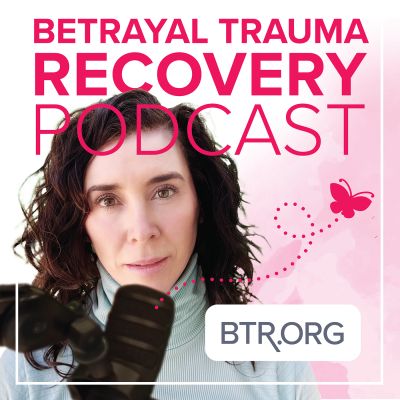btr.org - btr.org has daily, online Group and Individual Sessions for victims of emotional & psychological abuse and sexual coercion. For women experiencing pain, chaos, and isolation due to their husband’s lying, gaslighting, manipulation, porn use, cheating, infidelity, emotional abuse, and narcissistic abuse. Labeling a victim as "codependent" is a form of victim blaming. Pornography addiction / sex addiction are a domestic abuse issue. Narcissistic abuse is not a communication issue. We help women who are married, separated, or divorced heal through establishing emotional safety. If you suspect your husband is a narcissist, a pornography addict, or emotionally abusive, this podcast is for you. Every woman on our team has experienced betrayal trauma first hand. To learn more about Betrayal Trauma Recovery, visit BTR.ORG
https://www.btr.org/podcast/
episode 25: 3 Reasons Checking His Devices Doesn't Help
Does access to your husband's phone or computer automatically guarantee safety and peace in your home?
Sadly, no. In fact, it often leads to even more cognitive dissonance, fear, and manipulation.
Ashley shares her challenging journey, navigating safety-seeking behaviors including obsessively checking her husband's devices, and how these actions failed to provide real solutions or emotional stability. The conversation underscores the transformative power of establishing healthy boundaries for genuine safety.
Read the full transcript below and listen to this episode to hear Ashley's three reasons that checking his devices, and other safety-seeking behaviors, just don't help. And learn what does.
Full Transcript:
Anne (00:00):
Today we have Ashley on the podcast. Ashley went down a path that she now realizes was not the best path, and I want her to talk about her experience. So Ashley, I'm going to let you introduce the topic for today and talk about what you did and how it affected you.
Ashley (00:22):
I discovered my husband's addiction shortly after we were married, and I was obviously devastated and completely traumatized. He had withheld things from me and lied to me, and that created distrust in our relationship and caused me to question everything that he had ever told me that I had ever experienced with him. And so I just from the beginning, could not stop looking through his computer and through his phone and really any device or anything that I could verify or find information on, I would search into the late hours of the night and into the morning. That was just a response to my trauma, and I've learned since then that it's not useful, it has not helped me, and it really only harmed me and caused me further pain.
Safety-Seeking Behaviors Can Be Helpful OR Harmful
Anne (01:19):
I want to contrast your story with the story of many women that I've spoken with who have said I had this impression that I needed to check his phone, and I checked it and I realized he was having an affair, or I had this impression that I needed to look at his computer and I looked at the computer and I saw this. In some cases, women really benefit from a safety seeking behavior, and in some cases it starts driving them crazy and really keeps them in the abuse cycle. So today we're going to focus on when it is unhealthy.
Safety-Seeking vs. Codependent Behaviors
(01:55):
I also want to cover why we call this safety seeking behaviors as opposed to codependent behaviors. We use the trauma model, meaning once you've experienced trauma, you are trying to create safety in your life again, and we do not believe in the codependent model. Some people are codependent and they've been codependent for a long time. They were codependent with their friends in junior high. They're codependent with their family members. But if you're not codependent with anyone else and you've never acted codependent before, and then you found out about your husband's addiction, and suddenly someone's telling you you're codependent, no, you are doing safety seeking behaviors, trying to establish safety in your life again, and the purpose of BTR is to actually help women establish safety. A lot of the time when women are obsessively checking their husband's computers or phones, that's not helping them actually establish safety, even though that's their goal. Would you say that that's what you were looking for at the time?
Ashley (03:03):
Yes. For me, it was the only tool I had at the time. I didn't have any recovery resources and I was just trying my hardest to, like you were saying, establish safety with the little amount of knowledge that I had,
